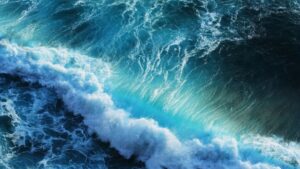 The objective of this program, overseen jointly by the College of Engineering and the Department of Marine Sciences, is to foster a theoretical and practical understanding of marine and engineering systems. Students successfully completing the certificate will have demonstrated:
The objective of this program, overseen jointly by the College of Engineering and the Department of Marine Sciences, is to foster a theoretical and practical understanding of marine and engineering systems. Students successfully completing the certificate will have demonstrated:
- In-depth knowledge in selected areas of engineering and marine sciences,
- The ability to integrate knowledge from engineering and marine sciences,
- The ability to conduct original research in the marine environment.
This cross-disciplinary program offers three broad focus areas, to be aligned with the graduate students’ research projects. Focus area Fluid Dynamics & Hydrology emphasizes the measurement and/or numerical modeling of near-shore and coastal processes; Instrumentation focuses on marine instrumentation deployment and sensor development; Ecological and Energy Engineering encompasses topics ranging from marine energy production to abiotic and biotic energy cycling.
Program Requirements
The certificate consists of a research and a course-work component.
The research requirement is satisfied by a substantial coastal and oceanographic engineering element as part of the student’s thesis or dissertation, subject to approval by both the ENGR and MARS program representatives. Because this is an interdisciplinary program, the student must include at least one graduate faculty member from the College of Engineering and the Department of Marine Sciences on his or her graduate committee.
The course requirements include
Two required core courses:
- ENGR 8103: Computational Engineering (3)
- MARS 8030: General Physical Oceanography (3)
Two marine sciences courses from the following list:
- MARS 8010: Biological Oceanographic Processes (3)
- MARS 8020: Chemical Oceanography (3)
- MARS 8100: Estuarine and Coastal Physical Oceanography (3)
- MARS 8150: Ocean Waves (3)
- MARS 8170: Ocean Mixing Processes (3)
Two engineering courses from one of the following focus areas:
Focus Area Fluid Dynamics & Hydrology
- ENGR(MARS) 4175/6175: Coastal Meteorology (3)
- CVLE 4130/6130: Mechanics of Jets and Plumes (3)
- CVLE 4140/6140: Transport and Mixing in Natural Flows (3)
- ENGR 8160: Advanced Fluid Mechanics (3)
- ENVE 4460/6460: Groundwater Hydrology for Engineers (3)
- ENVE 6450: Engineering Hydrology and Hydraulics (3)
Focus Area Instrumentation
- ENGR4230/6230: Sensors and Transducers (3)
- ENGR4220/6220: Feedback Control Systems (3)
- ENGR6560: Engineering Design Optimization (3)
- ENGR8240: Instrumentation Programming (3)
- ENGR8220: Microfluidic Transport Phenomena (3)
Focus Area Ecological & Energy Engineering
- ENGR4490/6490: Renewable Energy Engineering (3)
- ENVE4230/6230: Energy in Nature, Civilization, and Engineering (3)
- ENGR8560: Systems and Engineering Ecology (3)
- ENVE8110: Ecological Energetics (3)
A grade average of B is required to obtain the certificate, with a minimum course grade of a C. Unless noted otherwise, all courses are accessible by Permission of Department. Petitions for course substitutions can to be made in writing to the program representatives in ENGR and MARS.
Program Administration & Contact Information
The certificate is co-directed by the graduate coordinators from the Department of Marine Science and the College of Engineering. For questions contact the program representatives:
- ENGR: Dr. C. Brock Woodson, Associate Professor, bwoodson@uga.edu, 706-542-9574
- MARS: Renato Castelao, castelao@uga.edu, 706-542-2422


